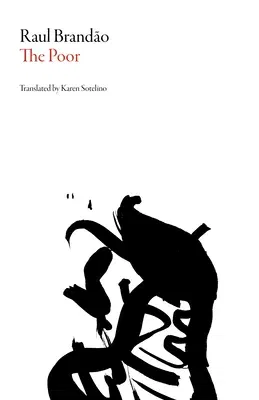Raul Brandão
(Author)The PoorPaperback, 22 July 2016

Temporarily out of stock
Free Delivery
Cash on Delivery
15 Days
Free Returns
Secure Checkout

Part of Series
Portuguese Literature
Print Length
177 pages
Language
English
Publisher
Dalkey Archive Press
Date Published
22 Jul 2016
ISBN-10
1564787648
ISBN-13
9781564787644
Description
Product Details
Author:
Book Format:
Paperback
Country of Origin:
US
Date Published:
22 July 2016
Dimensions:
21.08 x
13.97 x
1.52 cm
ISBN-10:
1564787648
ISBN-13:
9781564787644
Language:
English
Pages:
177
Publisher:
Series:
Weight:
226.8 gm